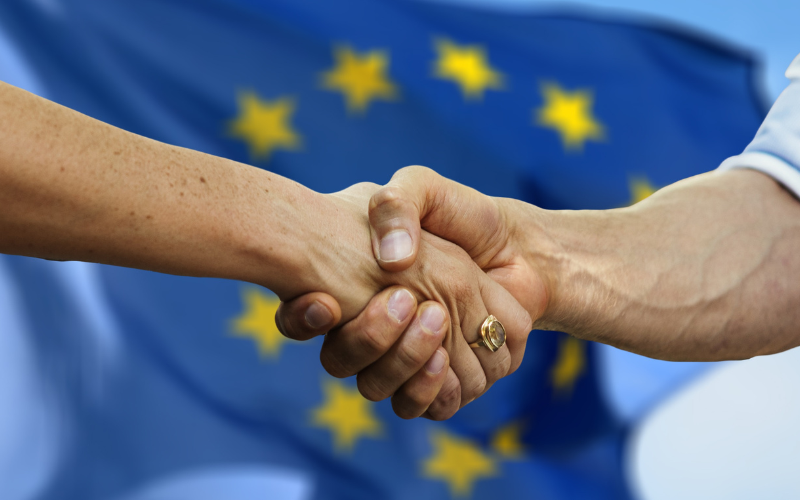Whom to call when you want to talk to Europe was the famous question attributed to Henry Kissinger that pointed to the lack of a central node of international contact and decision-making in the European integration project. The question remained unanswered for decades, despite earnest efforts to provide a credible answer, notably with the establishment of the post of the EU High Representative for Foreign and Security Policy. In any case, the question has now been authoritatively answered and the number that the US authorities can call to talk to “Europe” is no other than that of the European Commission President, Ursula von der Leyen’s. This is according to European Commission Vice-President for Promoting our European Way of Life, Margaritis Schinas, speaking at a recent event organized by the Delphi Economic Forum in Brussels.
The Oracle of Delphi has thus pronounced, Dr. Von der Leyen speaks for Europe, a Europe that has successfully transitioned “from innocence to assertiveness”, as Mr. Schinas also stated. Obviously, it is a geopolitical Europe that does not hesitate to play hardball, notably in the case of Ukraine, where the EU is committed to helping the country unconditionally in its resistance against Russia’s aggression. One wonders, though, whether this uncompromising stance originated in Europe or resulted from one of those transatlantic calls greatly facilitated by the now single European number, as it does not exactly respond to the needs and the long-term aspirations of Europe itself.
Through its successive incarnations until today’s EU, European integration has been in essence a large-scale peacebuilding project binding together initially the states of Western Europe that fought most fervently against each other during World War II – and World War I, for that matter. By creating a common market and shared economic interests the hope was that eventually, a common polity would emerge that would make another major war unthinkable. Thankfully, this has been the case for the members of the EU and its institutional predecessors for some 70 years now. It has not been the same, though, for the European continent as a whole – remember the wars in what used to be Yugoslavia and now the Russian invasion of Ukraine.
What would one expect from a peacebuilding project, even in its assertive phase, regarding this new war? No matter what grievances the Russians might have vis-à-vis Ukraine or NATO, they have broken basic international legality rules by invading an independent, sovereign state. There has to be punishment for the crime of aggression and for any and all war crimes and crimes against humanity committed in Ukraine in the course of this war, and there has to be payment of reparations for the destruction caused. But for that to happen, or even for any such discussion to get started, the fire has to cease, either because of a total Russian defeat or through a process of de-escalation and peacemaking. Can one reasonably count on bringing about a complete defeat of a major military power with huge nuclear capabilities, without engaging in an all-out war, possibly the West directly against Russia and not via Ukraine? What are the odds for that and can one take the risk? Or can one live with the indefinite continuation of the ongoing war of attrition that increases the suffering of civilians, especially the population of Ukraine, as well as the food and energy insecurity of people around the world?
An assertive but still peace-loving and peace-seeking EU could join forces with the United Nations (UN) and the Organization for Security and Cooperation in Europe (OSCE) to broker an agreement that would pave the way to a lasting and just peace between the belligerents. An EU striving for a better future for itself and the world could help create a vision of that future for the whole European continent, Ukraine and Russia included and able to co-exist in peace, with mutual security guarantees, verified gradual disarmament and a focus on working together to address shared challenges, such as climate change, pandemics, food and energy insecurity.
Instead, it is heartbreaking and ominous to see the assertive EU, its central institutions and its individual member states, speaking the language of war to the bitter end and embarking on a major build-up of their arsenals. This means the diversion of funds from other budget lines, thus exacerbating the economic woes of EU citizens just recovering from the COVID-19 crisis while increasing instability in the region and the world. It is worth a pause, serious rethinking and a change of course before it is too late. Geopolitical assertiveness does not need to mean a return to old patterns of combative behavior among great powers, the EU now being one of them. It can mean the proud assertion of the European integration cum peacebuilding project and the expansion of its peace dividends, with varied intensity and appropriate institutional arrangements, to the whole of Eurasia.



